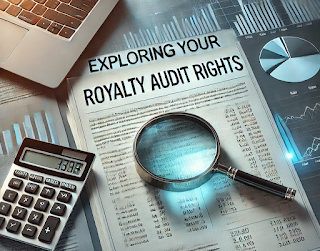The entertainment industry’s transformation over the last decade, driven by the rise of streaming, has illuminated three critical areas attorneys and their clients should monitor: advertising, licensing models, and content strategies. These areas represent immense opportunities for those who understand the shifting landscape.
Advertising Renaissance
Streaming platforms once touted ad-free content as their premium offering. But in recent years, the introduction of ad-supported tiers by platforms like Netflix and Disney+ has reshaped revenue models. Certain insiders claim that, contrary to early fears, ad-supported subscriptions often generate higher Average Revenue Per User (ARPU) than their ad-free counterparts, premium subscription services. This trend, combined with the advent of sophisticated targeting tools, marks the beginning of a new advertising golden age.
However, as a profit participation auditor, I am skeptical. While industry leaders point to higher Average Revenue Per User (ARPU) for ad-supported tiers than for premium subscriptions, I’ve yet to see a single case where this holds true. Premium subscriptions consistently outpace ad-supported ARPU when all factors are accounted for.
In any case, despite insider optimism, ad-supported tiers are not a guaranteed financial boon. ARPU from ad-supported services relies on robust targeting technology, a consistent influx of high-quality ads (i.e., ad inventory quality) and on advertisers paying market rates (currently Amazon is charging below-market rates as a loss leader, making it difficult for video streamers to sell advertising at market rates).
Further, for clients producing content, ad-supported models can represent a double-edged sword. While they expand audience reach, they often necessitate stricter content guidelines to ensure “brand safety.” Navigating these constraints requires careful contract negotiations to protect creative integrity while maximizing revenue opportunities.
This and the discrepancy between insider optimism and real-world evidence demands scrutiny. Attorneys representing creators should be prepared to question ad revenue forecasts and insist on transparency in revenue-sharing agreements and prepare to negotiate both for:
- Ad revenue shares, ensuring equitable participation in this growing segment
- Detailed audits and data-sharing provisions to verify claims (a subject best addressed by a consultant at my firm, Boschan Corp., as there are many considerations)
The Case for Windowing
Exclusivity defined streaming’s first decade, but the pendulum is swinging back toward the traditional windowing model. Licensing content to multiple platforms has proven its value, as demonstrated by recent success stories like Suits, which found a massive new audience years after its original release.
Clients with legacy content libraries should explore licensing opportunities with ad-supported platforms or free streaming services. These platforms are hungry for proven content that can attract viewers without the development costs of original programming. Moreover, content that has outlived its exclusivity period on one platform can enjoy a second (or third) life elsewhere, creating new revenue streams.
Attorneys advising studios and production companies should prioritize flexibility in contracts, ensuring that exclusive rights revert to their clients after a reasonable time. This allows studios to pursue licensing deals that benefit from the growing appetite for library content.
Cost Control and Strategic Incentives
One of the most pressing issues in streaming today is the unchecked rise of production costs. Expensive, sprawling productions were standard when the likes of Netflix was competing to gain market share. But now that Netflix is established and the industry is going through consolidation on its path in the direction of an oligopolistic marketplace, the industry is waking up to the reality that financial sustainability requires moderation.
Attorneys should ensure that contracts reward clients who produce high-quality content within reasonable budgets. For instance, performance-based incentives tied to efficient production could foster a healthier balance between artistry and fiscal responsibility.
Moreover, the return of contingent/performance-based compensation models aligns incentives between platforms and creators. Attorneys must advocate for transparent success metrics and fair back-end deals that reward efficiency and audience impact, rather than sheer budget size.
Embracing Opportunity
The entertainment industry stands at a crossroads. Advertising is making a comeback, the windowing model is ripe for revival, and cost control is no longer optional. Attorneys have a pivotal role to play in shaping these trends, ensuring their clients navigate this evolving landscape with clarity and confidence.
By asking tough questions, negotiating strategic terms, and leveraging data-driven insights, attorneys can turn challenges into opportunities for their clients—and themselves.

















